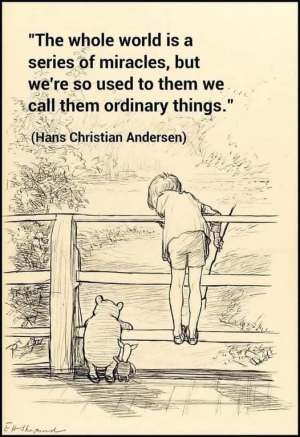I'm thinking of things that we tend to take for granted, or explain away, but are still wonderful upon further consideration. Like compost -- there's something mystical about taking vegetable scraps, coffee grounds, banana and orange peels, tossing them in a big black tub and closing the lid; a few months later, rich brown and fertile soil.
Every time.
Every time.

